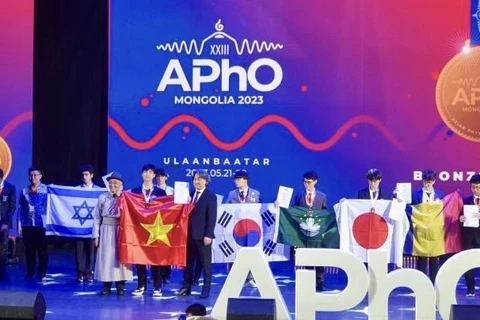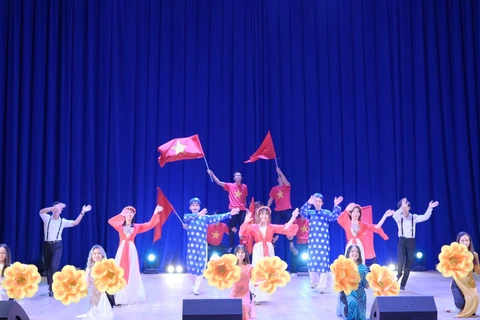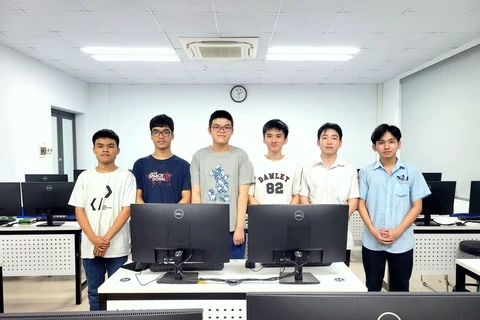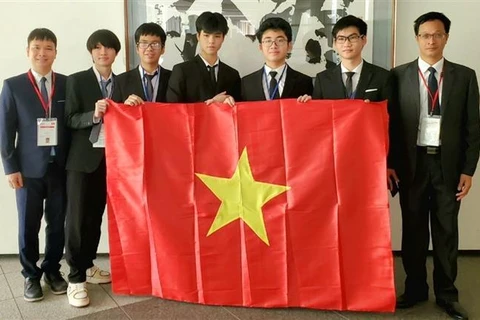Hanoi (VNA) – The World School Debate Championship 2023 (WSDC 2023) kicked off in Hanoi on July 18, attracting the participation of 65 national teams, including over 300 students and 145 jury members from all over the world.
The WSDC Vietnam Team comprises five members. They are Do Thu Mai from The Dewey Schools, Luu Chi Anh from Foreign Language Specialised School, University of Languages and International Studies under Vietnam National University, Hanoi, Nguyen Dieu Anh from TH School, Hua Bao Chau from Renaissance International School Saigon and Phan The Viet from Wellspring International Bilingual School.
Vietnam is the fourth country in Southeast Asia to host the WSDC. It is also the first nation to host the tournament in person after the COVID-19 pandemic with the largest number of attendees so far.
This year’s event, the 34th edition of WSDC, which is scheduled to last through to July 28, is being jointly organised by the Vietnam Academy of Debating and Public Speaking (VADP) and VinUniversity (VinUni), a private and not-for-profit university established by VinGroup. It helps foster the critical thinking and creativity of debaters from around the world as well as serves as a forum for knowledge exchange.
Participating teams are competing in eight rounds covering a wide variety of topics. The best teams will advance to the knockout stages, including pre-quarterfinals, quarterfinals, semi-finals, and finals.
The WSDC is an English-language debate competition for high school students. It takes place each year in a different country, hosted by a national debating body. Past venues include Peru, Qatar, the Republic of Korea, Greece, South Africa, Thailand, Germany, Indonesia, and Croatia. Each country can send a team of 3-5 eligible students to debate on a spectrum of issues, from international relations to moral philosophies. Currently, there are 50 to 60 nations that compete annually.
It was first held in 1988 in Australia, aiming to promoting diversity in cultural exchanges as well as debating movements in different countries.
The WSDC is a contest with two teams representing the Proposition and the Opposition. Each team needs to come up with strong arguments as well as sharp criticism to support their points of view, and at the same time convince the judges that they are the superior team compared to the opponent. In order to argue well, students need to be equipped with logical thinking and language ability, a deep understanding of many topics with diverse perspectives, different social issues, and a creative mindset.
According to the organisers, the hosting of WSDC will spread international standard debate competition to Vietnamese students, thereby, offering them an opportunity to learn and hone soft skills such as public speaking, critical thinking and leadership skills to enrich their understanding of issues in society.
The event is also a chance for students to observe and directly interact with the world's top national teams - the best students representing their country at the tournament.
As the founder of the Vietnam Debate community, Tuan said that education is no longer limited to absorbing theory from textbooks in the classroom. Debating has become an engaging method of intellectual exploration and discovery for students who need to be incubated in a comprehensive way with a better grasp of the world around them.
To become future generation leaders, it is necessary for them to have active listening, persuasion and critical thinking skills to become good communicators, he said, adding that these skills will be cultivated through the process of debating./.


























